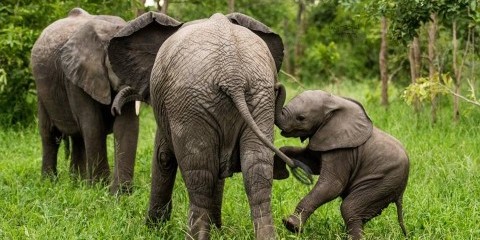
7-Day Wildlife and Gorillas of Rwanda
Experience a private guided tour of Rwanda including Akagera National Park and a gorilla trekking.

Answer the call of the wild and embark on a classic African safari in Tanzania, the birthplace of safari and a land brimming with untamed beauty and unparalleled wildlife encounters. With its vast plains teeming with the highest concentration of animals in Africa, diverse ecosystems ranging from savannas to mountains, and breathtaking landscapes that stretch as far as the eye can see, Tanzania offers an unparalleled safari experience that will leave you breathless.
The Great Migration: Witness the annual spectacle of millions of wildebeest, zebras, and other animals as they migrate across the Serengeti plains in search of fresh grazing and water. This natural phenomenon is one of the most spectacular wildlife events on Earth.
Ngorongoro Crater: Explore this UNESCO World Heritage Site, a collapsed volcanic caldera teeming with diverse wildlife, including the “Big Five” (lion, elephant, leopard, buffalo, and rhinoceros). The crater‘s unique ecosystem supports a high concentration of animals, making it a prime Africa safari destination.
Serengeti National Park: Discover the vast plains and diverse habitats of this iconic park, home to a wide range of animals, including lions, leopards, cheetahs, elephants, giraffes, and countless bird species. The Serengeti offers endless opportunities for wildlife viewing and photography.
Tarangire National Park: Experience the unique landscape of this park, characterized by baobab trees, seasonal swamps, and the Tarangire River. The park is known for its large elephant herds, diverse birdlife, and predator sightings.
Zanzibar: Relax on the white-sand beaches and turquoise waters of this tropical paradise, after your safari adventure. Explore the historic Stone Town, a UNESCO World Heritage Site, and indulge in the island’s rich cultural heritage and vibrant cuisine.
Cultural Encounters: Immerse yourself in the rich culture and traditions of Tanzania’s diverse communities. Visit Maasai villages, learn about their unique way of life, and witness traditional dances and ceremonies.
Balloon Safaris: Soar above the Serengeti plains in a hot air balloon, taking in breathtaking views of the landscape and wildlife below. This unique perspective offers a truly unforgettable safari experience.

Experience a private guided tour of Rwanda including Akagera National Park and a gorilla trekking.
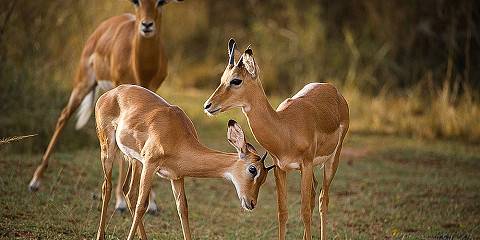
This twelve-day safari will take you to some of Rwanda’s most amazing destinations. Hike through

This 10-day Primate and Wildlife safari is an incredible adventure to ideal destinations to unplug
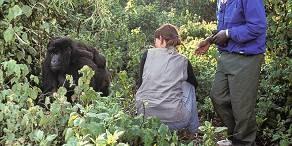
This is a wildlife lover’s dream trip spanning two countries: the Rwanda and Uganda wildlife
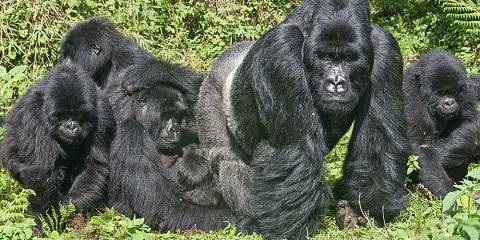
Experience all the highlights of Rwanda in just one trip! Travel from the capital city
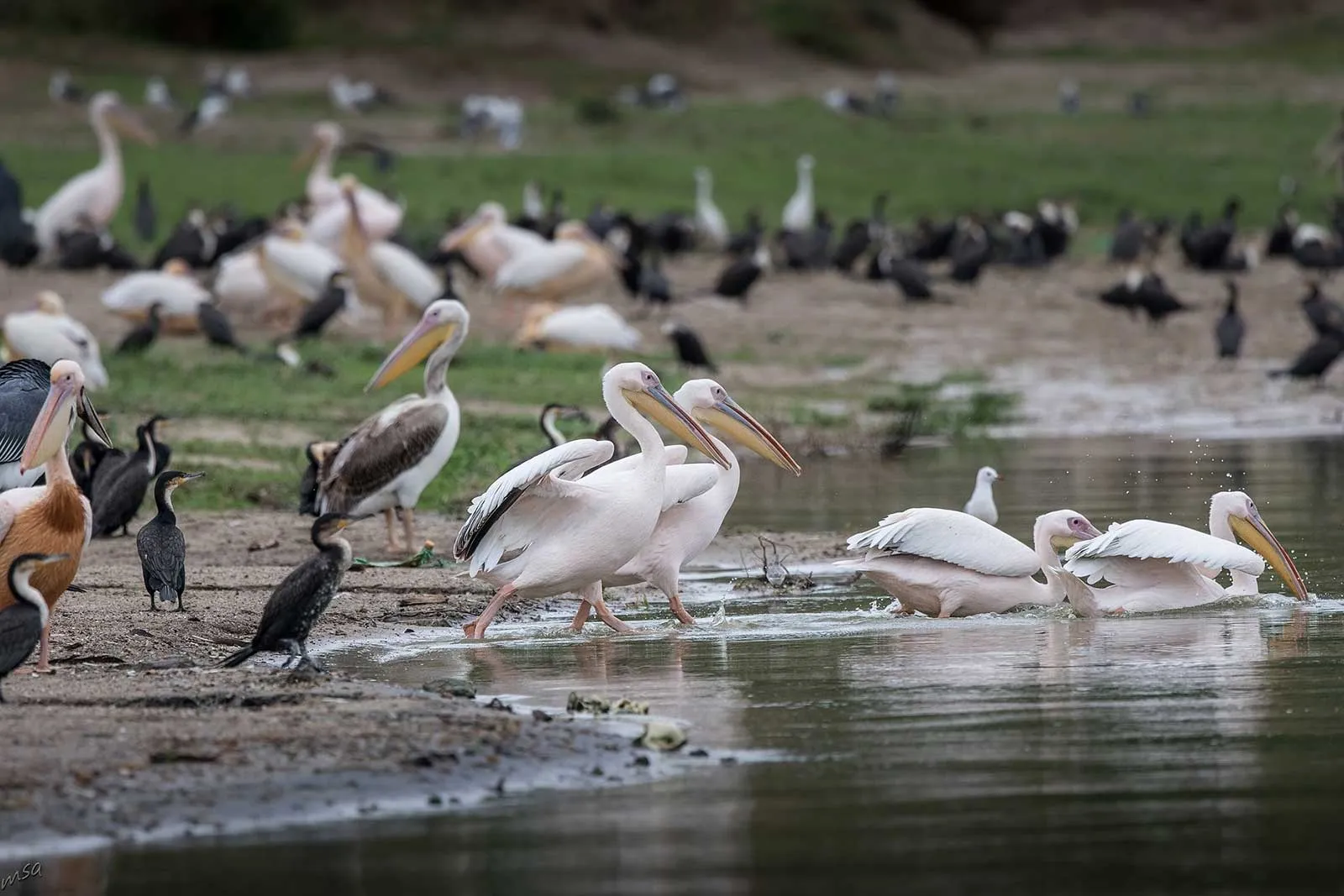
Keep your eyes peeled for the vibrant feathers of the green-breasted pitta, the crooked smiles
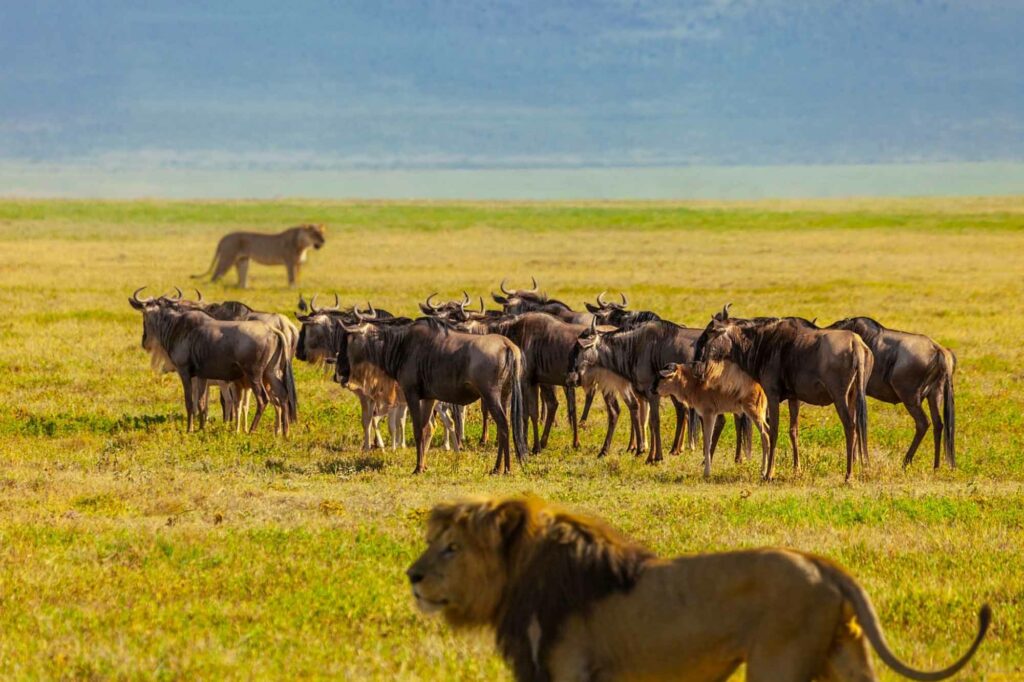
Northern Tanzania safaris remain the most popular choice for many travelers, drawn by the iconic Serengeti National Park, the wildlife-rich Ngorongoro Crater, and the awe-inspiring spectacle of the Great Wildebeest Migration. Witness millions of wildebeest and zebras as they traverse the plains in search of fresh grazing, while opportunistic predators like lions, cheetahs, and hyenas follow closely behind, creating one of nature’s most dramatic displays of life and death in the shadow of the mighty Kilimanjaro.
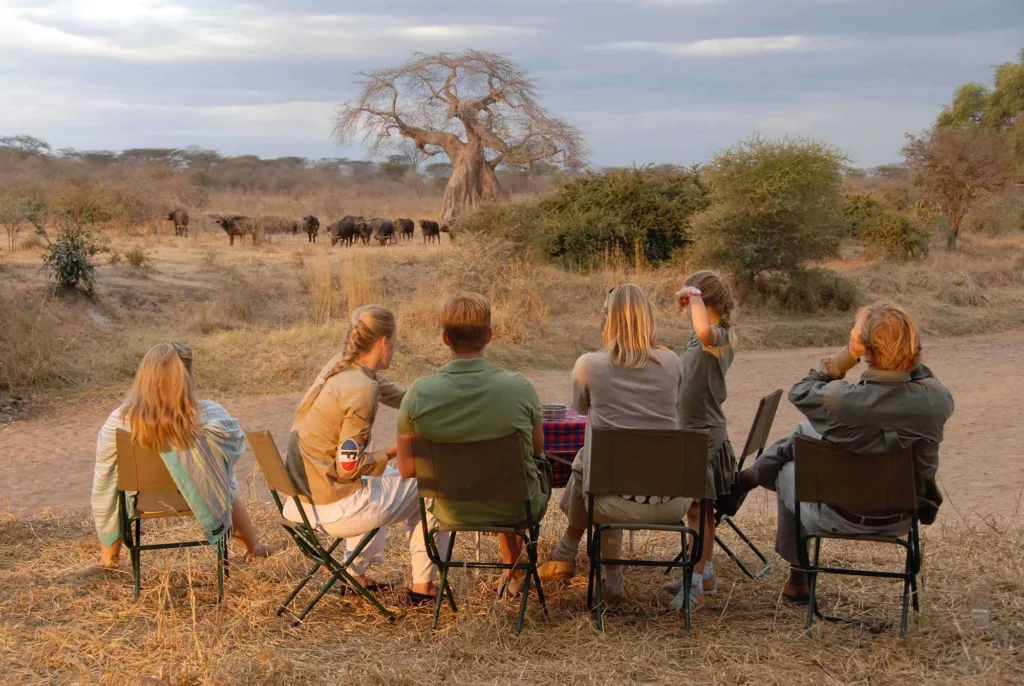
For those seeking a more secluded and luxurious safari experience, head to southern Tanzania for its untouched wilderness and exclusive lodges. Explore the vast Selous Game Reserve, Ruaha National Park, Mahale Mountains National Park, and Gombe Stream National Park, where you’ll encounter epic wildlife, including chimpanzees and wild dogs, and immerse yourself in pristine natural beauty.
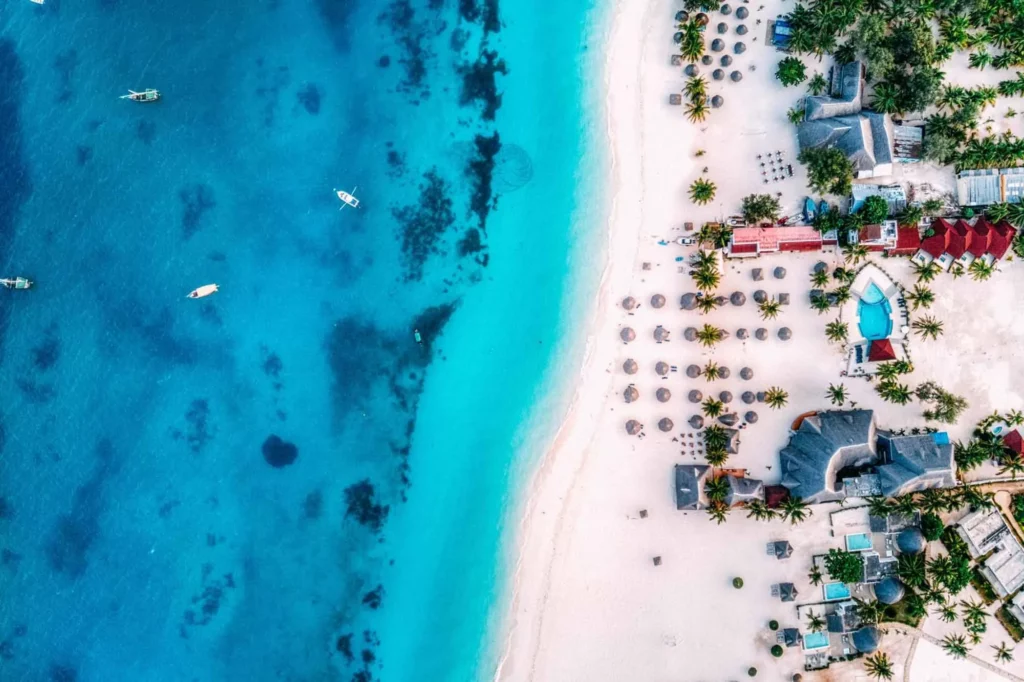
For those seeking sun-kissed shores and turquoise waters, walk Tanzania’s coastline and the enchanting island of Zanzibar. Sink your toes into the powdery white sands of Zanzibar’s pristine beaches, explore vibrant coral reefs teeming with marine life, and immerse yourself in the island’s rich cultural heritage, where Arab, African, and European influences blend seamlessly. Wander through the labyrinthine streets of Stone Town, and discover a world of aromatic spice markets, ornate palaces, and historical landmarks.
| Shoestring
$ | Budget
$$ | Mid-range
$$$ | High-end
$$$$ | |
|---|---|---|---|---|
| Camps & Lodges | under $250 | $250 – 450 | $451 – $600 | over $600 |
| Restaurants (per meal) | under $12 | $12 – $20 | $21 – $30 | over $30 |
| Safari Vehicle (per day) | under $100 | $100 – $150 | $151 – $250 | over $250 |
| Local Guide (per day) | under $50 | $50 – $150 | $150 – $250 | over $250 |
Most Tanzania safari lodges offer a full-board per person rate, including meals, taxes, and assuming double occupancy. Others offer an all-inclusive room rate to include park fees, transfers, activities, and everything full-board offers. A few lodges operate on a half-board rate, and rare ones offer bed & breakfast except city hotels.
The best time for a Tanzania safari is during the dry season from June to October. This period offers favorable conditions for wildlife viewing, with minimal rainfall and clear skies, making it easier to spot animals. The dry season also coincides with the wildebeest migration, which is a major attraction for many safari enthusiasts. Generally, the best time to go on a safari in Tanzania depends on what you want to see and do:
This is the dry season, which is considered the best time for wildlife viewing. Animals gather around waterholes, making them easier to spot, and you don’t have to worry about flooded areas or safari camps closing. This is also when the annual wildebeest migration begins, with the animals moving north towards Kenya’s Masai Mara. However, this is also peak travel season, so prices and crowds may be higher.
This is the start of calving season, and predators like lions and cheetahs are active as they try to hunt the vulnerable herds. Migratory birds from Europe and North Africa also visit the area, and many display their breeding plumage. While the Northern Circuit parks may be less crowded than during the dry season, it’s still peak season, so hotels may charge higher rates.
This is a good time to visit the islands of Tanzania, such as Zanzibar and Pemba, as it’s hot and dry with temperatures around 40°C. However, parks and accommodations may be more crowded during the holiday season.
The best time for a Tanzania safari to see the great wildebeest migration is during the dry season from June to October. During this time, the wildebeests and other herbivores make their iconic river crossings across the Grumeti and Mara Rivers, providing incredible wildlife viewing opportunities.
Specifically, the peak time to see the migration is typically in July and August, when the herds have reached the northern Serengeti and are preparing to cross into the Masai Mara in Kenya. This is when the wildebeests, zebras, and other animals attempt the treacherous river crossings infested with crocodiles and hippos, while predators like lions and leopards wait on the shores to ambush the prey.
However, the great migration in Tanzania is an ongoing, year-round event, with different aspects of the migration occurring at different times of the year.
In the early months of the year, the herds can be found calving in the southern Serengeti, while from December to March they are spread out across the southern and central regions.
So while July-August is considered the peak, there are good wildlife viewing opportunities throughout the dry season.
The shoulder seasons of June and September-October are also excellent times to visit, as you can still see the migration without the peak crowds.
The weather is also mild and pleasant during these months. The rainy seasons from March-May and November-December are generally less ideal for safaris, as the wildlife is more dispersed and travel can be disrupted.
Zanzibar is an excellent destination for family vacations, offering a wide range of family-friendly resorts and hotels that cater specifically to families with children. Many of these resorts feature large family rooms or villas with private pools, children’s clubs and supervised activities, safe swimming areas protected by coral lagoons, and opportunities for kids to interact with local children at playgrounds. The island is a safe and laid-back destination that is easy to travel with kids, with resorts having staff experienced in hosting families and able to arrange transfers, activities, and childcare as needed.
Kenya is home to one of Africa’s most intriguing and historically essential coastlines, perfect for introducing travelers on their first safari in Kenya to Africa’s coastline, away from the safari hooves, canines, and claws. The Kenyan coast stems from extraordinary natural beauty. It is home to marine parks, bustling coral reefs, and bird-filled coastal forests, all of which make for a fabulously diverse holiday after your inland wildlife safari. The southern Kenya coast presents perfect don’t-make-me-think beach holidays with Diani, Galu, and Funzi beaches standing out getaways for honeymooners and romantics. Suitable for diving and great for deep-sea fishing, Mombasa is Kenya’s beach destination for the younger, more social crowd, which means excellent restaurants, nightclubs, and adventures. And Mombasa’s airport means easy combining a Kenya safari with a coastal beach holiday.
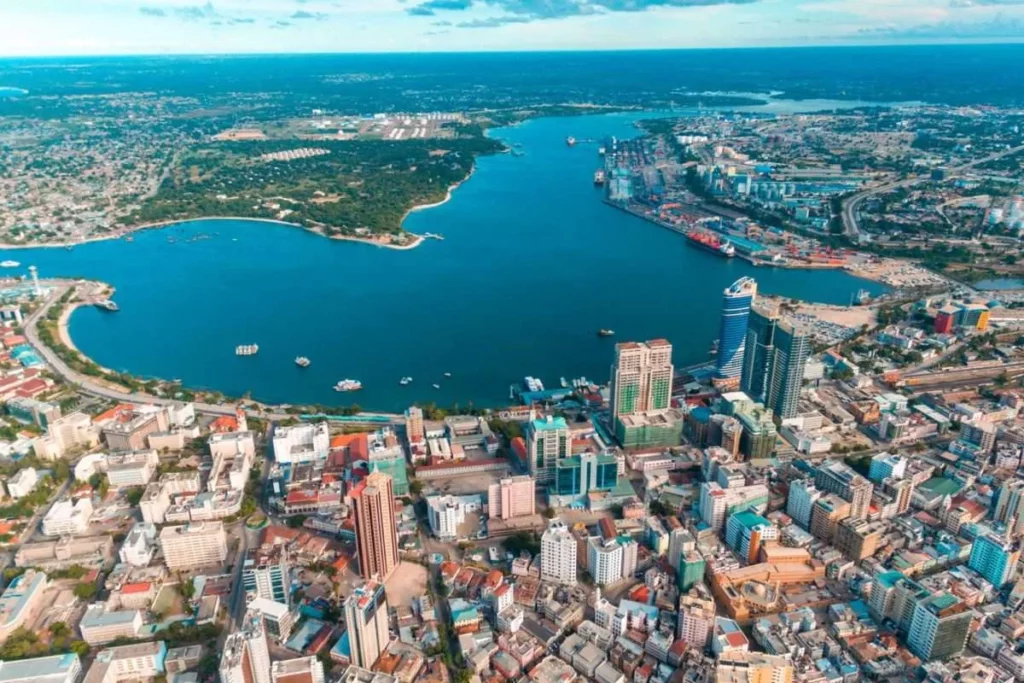
Second, only to Kenya’s Mombasa, Dar es Salaam is East Africa’s busiest port. The name, in Arabic, means “haven of peace”. Dar es Salaam blossoms with exciting restaurants, beautiful hotels, and some of the best nightlife on the coast. It is the gateway to the southern safari circuit, and you can spend your last night here and check out the coastal city before exiting Tanzania
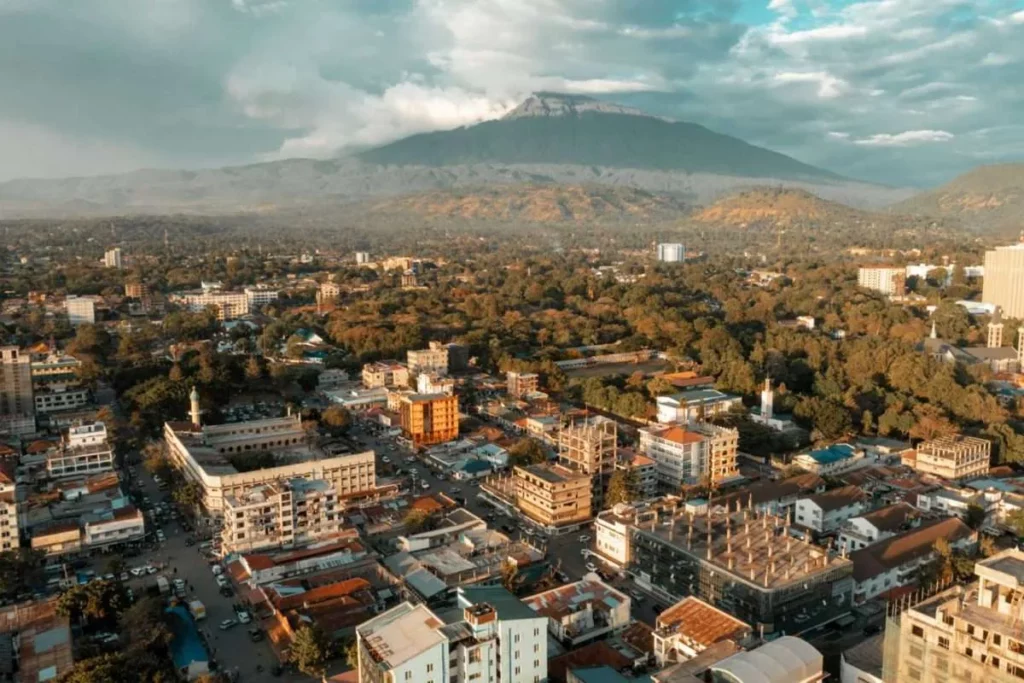
Arusha is the gateway to the northern Tanzania safari circuit, typically the Serengeti Safari. On a clear day in Arusha, you can see Mt. Meru, Africa’s fifth-highest mountain at 4,556 meters (14,947 feet), looming in the distance. Some superb accommodation options on the outskirts of Arusha are well worth a day or two pre or post Northern Tanzanian safari.






East African Gorilla Tours offers tours and trekking experiences that allow visitors to experience the natural beauty and wildlife of Rwanda and Uganda.
Copyright © 2025 East African Gorilla Tours. All rights reserved.